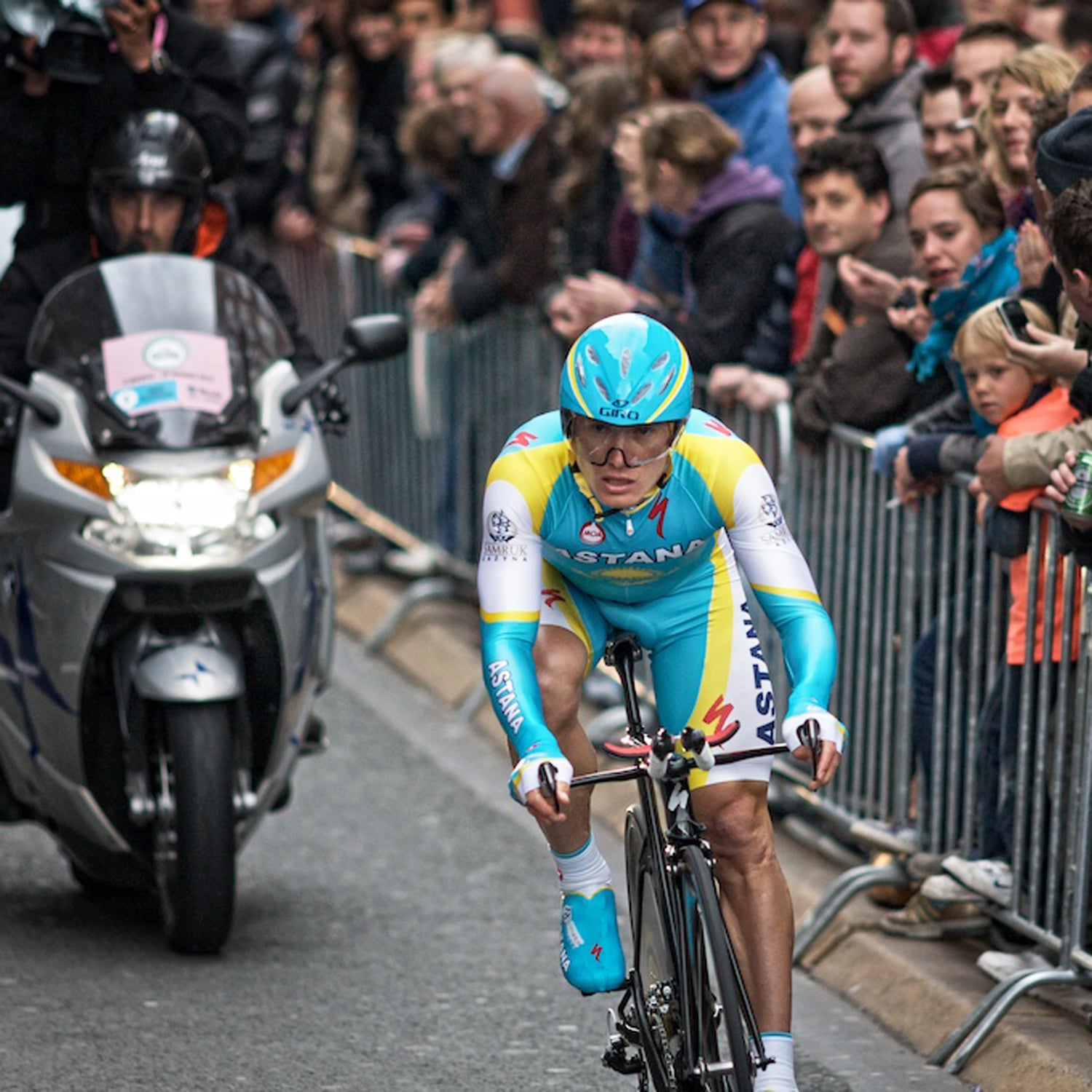Since Vincenzo Nibali’s commanding Tour de France win in July, it’s been all downhill for his Astana team.
Two of his teammates were busted for doping and three more from Astana’s feeder team tested positive just after that. Far from defending his 2014 Tour title, Nibali has to wonder whether his team will even be allowed in the race next year. Cycling’s governing body, the UCI, awarded 16 licenses on Thursday for the sport’s top circuit, the WorldTour, but . Instead, they’re undergoing a special review by the License Commission, triggered by the five positives.
Perhaps it’s no surprise that a pro cycling team is again in the midst of one. But there is a key difference between Astana’s past struggles and its current situation: the sport Astana exists in has changed, or professes to. For the good of cycling, Astana must be sidelined immediately and its top management—who have a long history with doping—permanently banned.
That’s not hyperbole. Astana’s current troubles center around those : a pair on the main WorldTour team and a trio of positives from developmental feeder team, Astana Continental, both of which are named for the Kazakh capital and are essentially arms of the Kazakh Cycling Federation.
But what’s most troubling isn’t the swift succession of violations (all since August), but the team’s reaction to them. Valentin Iglinsky, the first to test positive, immediately But a second positive test would mandate a team-wide eight-day suspension. Iglinsky’s brother, Maxim, went positive three weeks later but conveniently to confess, sparing Astana a politically embarrassing DNS at the team’s home-country Tour of Almaty.
Then riders on Astana Continental began to test positive: three, in quick succession, for steroids. Team officials and star riders began carefully distancing themselves. Nibali, the Tour winner, and not part of his inner sanctum of support riders and staff.
Astana manager Alexandre Vinokourov offered statements alternating fury at the “crazy” young riders on the Continental team and carefully distancing the flagship WorldTour team from its wayward sibling. The teams have in common only a name and a jersey, he said.
Not quite. Four of the 29 riders on Astana’s 2014 team are graduates from the Continental team. This fall, the WorldTour arm took on three more as trainees. The best prospect, Ilya Davidenok, tested positive. The teams also shared a manager/director, and formerly, a doctor, to say nothing of identical title sponsors and the link to the Kazakh Cycling Federation. And if the two teams have different management structures, as we’re told, then how is it possible that Vinokourov after its third positive?
Vinokourov’s statements, especially, have a greasy smugness to them; it’s the attitude of someone who thinks we’re credulous rubes, happily scarfing up bullshit. Or worse, that he knows there will be no real consequences for what we all see as lies.
Astana’s 2014 troubles are far from isolated incidents. Roman Kreuziger, a top pro now on another team, is currently from cycling’s governing body that his biological passport profile showed, for the 2011 and 2012 seasons he was on Astana, serious abnormalities that could only result from doping.
Vinokourov’s statements have a greasy smugness to them; it’s the attitude of someone who thinks we’re credulous rubes, happily scarfing up bullshit. Or worse, that he knows there will be no real consequences for what we all see as lies.
Astana is where Alberto Contador won, and then lost, the 2010 Tour de France after testing positive for traces of a banned drug, Clenbuterol. And back in 2007, the team had three positive tests in a single season, highlighted by that of Alexandre Vinokourov, who tested positive at the Tour de France for transfusing someone else’s blood. Vinokourov’s transgressions may not be limited to doping. He was in the 2010 Liege-Bastogne-Liege.
Fortunately, the governing body, the UCI, has some discretion over whether to grant or withhold a team’s license. Astana originally had approval for 2015 but, in light of the positives, UCI president Brian Cookson .��
If there is any real credibility and backbone at the UCI—which a year ago underwent massive upheaval with Cookson’s election on a platform of returning transparency and ethics to the sport—Astana should be denied a 2015 WorldTour license.
There will certainly be pressure on the UCI to put Astana on double-secret probation, but to still let them race. Pro cycling has been contracting for several years, and the UCI has kept the WorldTour at 18 teams only by convincing some teams to step up to the top echelon.
And a 2012 attempt to deny a license for the Russian team Katusha, in part over doping positives, ended when Katusha won an appeal at the Court of Arbitration for Sport and . The UCI may not want to revisit that terrain so soon, although there are differences that might make Astana’s rejection an easier sell.
But cycling continues to be beset by persistent whispers of doping. That the Iglinskys tested positive for EPO shows that it’s still in use, while the Kreuziger case points to the possibility that riders are using techniques like micro-dosing to evade detection. And there’s concern that testing itself isn’t thorough enough. Nibali and two other top riders spent weeks this year at training camps on Tenerife, in the remote Canary Islands, and .
Cookson was elected as part of a reform wave. There is a welcome place for the sport’s rich tradition, but there is also a need to modernize, to clear out sclerotic tissue and fossilized remnants. For seven years, Astana has been cycling’s problem child, gifting the sport with several of its biggest scandals. If the sport has changed, then Astana seems not to have followed.��If cycling wants to become more transparent, more professional and a truly modern sport, this is an important moment. Astana must go.


